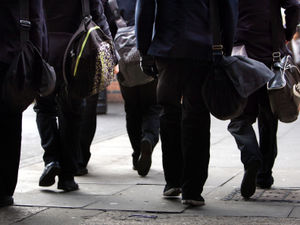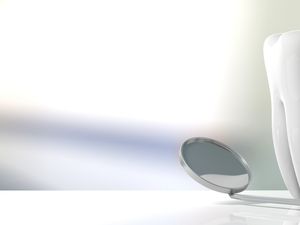10 years of smoke-free pubs
David Moss remembers how a visit to his pub used to mean making your way through a haze of cigarette smoke.
"I remember when you used to come in here, and you couldn't see the back of the pub, the fug of the smoke was so thick," he says.
It is 10 years today since England became the last part of the UK to ban smoking in workplaces and enclosed public spaces, which made it illegal to smoke inside a pub.
But for Mr Moss, who has kept Shropshire's first non-smoking pub, The Three Fishes in Shrewsbury for 13 years, it seems hard to believe that a decade ago people would consider it normal to smoke in the bar.
"I always think it strange when I watch old television programmes, how strange it seems to see somebody lighting up in a pub, and then you think, it was only 10 years ago that you could do that," he says.
The Three Fishes was one of just a handful of pubs in the UK to ban smoking when then landlord John Sims introduced his own ban back in 1994.
Mr Moss took over 10 years later, saying he only took on the pub because it was smoke free.
"It used to smell terrible when people smoked in pubs," he says.
By the time the smoking ban came into force in 2007, a number of pubs had already introduced their own bans.
In 2004, Rio Wine Bar in Oswestry followed the Three Fishes' lead, introducing its own ban following a referendum of customers. By 2006, the J D Wetherspoon chain had banned smoking at all of its pubs.
The ban was introduced to reduce the risk of exposure to other people's smoke, which is known to be cause cancer.
Like many local authorities, Telford & Wrekin Council had its own enforcement team, which went around ensuring that both smokers and businesses themselves were complying with the regulations.
The officers, dubbed "the boys in blue" because of their sky-blue polo shirts, could issue £50 spot fines to anybody caught smoking where they shouldn't be, while businesses faced charges of up to £2,500 if they permitted people to smoke inside their buildings. The officers also checked that business premises were displaying the correct no-smoking signs.
Ian Mercer, who as environmental health team manager was one of the "smoking police" patrolling Ironbridge on the day the ban came in, said Telford adopted a "three strikes and you're out" approach.
"Firstly we will be advising if they are not in compliance with the legislation, secondly they might get an official caution if they continue not to comply, and thirdly legal action through a fixed penalty or a trip to the magistrates court," he said at the time.
It wasn't just pubs. The laws also applied to factories, offices, warehouses, and more controversially, company cars and vans.
Many welcomed the cleaner air and the health benefits following the band coming into force.
But there were also fears for what it would mean for the traditional English pub and also what the future held for bingo halls where half of customers were believed to be smokers.
There is no doubt the pub industry has been hit hard during the past decade.
Last year, it was estimated the number of pubs across the UK fell from 58,200 pubs in 2006 to just 48,000 in 2016.
But while the smoking ban has been blamed by some for deterring smokers from going for a drink, it's unclear how much of an impact it had with many other reasons also cited for venues shutting their doors.
Cheap supermarket booze and breweries selling off unprofitable venues are said to be among the other factors that have contributed to the decline.
Many pubs have been able to still attract smokers by providing shelters in beer gardens and more al fresco dining and drinking options such as outside bars.
Alan Thwaites, secretary of the Bridgnorth branch of the Campaign for Real Ale, says he is personally all in favour of the ban, although he can sympathise with the businesses that have suffered as a result.
"From a personal point of view, I think it is absolutely first rate," he says.
"It's made life so much more pleasant for a confirmed non-smoker like myself.
"I know a lot of people and businesses are feeling the pinch, but for the great majority it has been a good thing."
Not everybody was impressed when the ban was introduced. Trish Fryer, from St Georges, Telford, said: "I hate the smoking ban. There are already no-smoking areas, why shove us outside?"
Perhaps wisely, the Government chose the middle of summer to introduce the ban. Had smokers been pushed outside in the depths of December, the mutiny might have been more pronounced.
Bingo halls in England also had to react quickly to the ban coming into force as many players were in the habit of puffing and playing bingo at the same time and there were concerns that they would dessert the clubs.
Between 2005 and 2014 it was estimated the number of bingo clubs in the UK dropped from almost 600 to around 390 with other factors such as the rise in online gaming and a fall in consumer spending said to have contributed along with the smoking ban.
But in recent years, the number shutting down has fallen and in some parts of the UK, bingo halls have enjoyed a renaissance in recent years with more people flocking to play a game.





